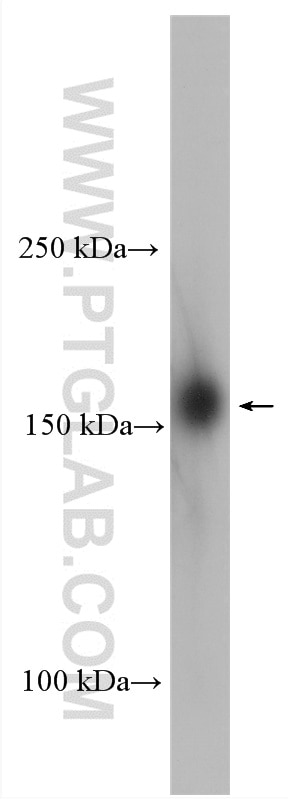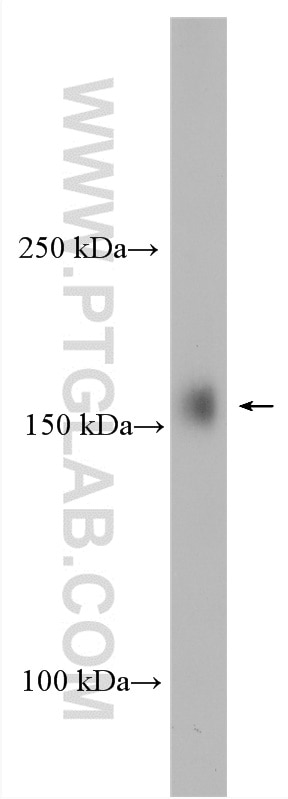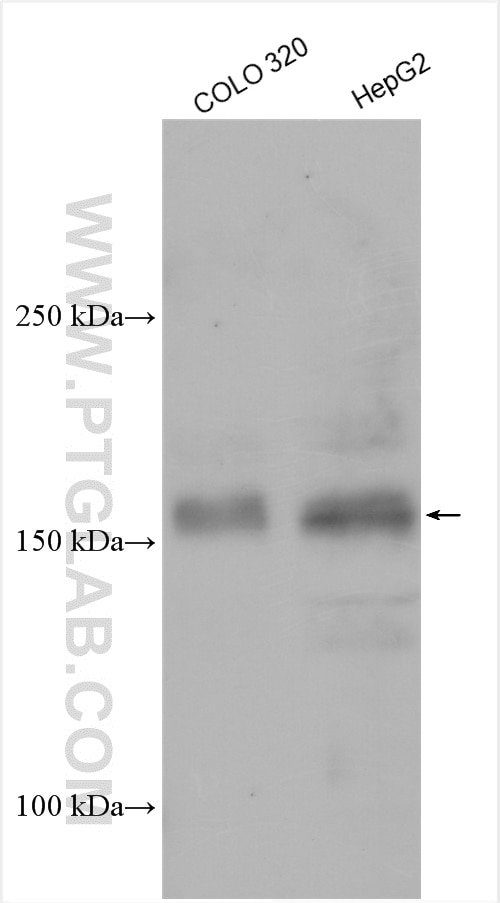UTX Polyklonaler Antikörper
UTX Polyklonal Antikörper für WB, ELISA
Wirt / Isotyp
Kaninchen / IgG
Getestete Reaktivität
human
Anwendung
WB, ELISA
Konjugation
Unkonjugiert
Kat-Nr. : 23984-1-AP
Synonyme
Geprüfte Anwendungen
| Erfolgreiche Detektion in WB | COLO 320-Zellen, HepG2-Zellen |
Empfohlene Verdünnung
| Anwendung | Verdünnung |
|---|---|
| Western Blot (WB) | WB : 1:200-1:1000 |
| It is recommended that this reagent should be titrated in each testing system to obtain optimal results. | |
| Sample-dependent, check data in validation data gallery | |
Veröffentlichte Anwendungen
| WB | See 1 publications below |
Produktinformation
23984-1-AP bindet in WB, ELISA UTX und zeigt Reaktivität mit human
| Getestete Reaktivität | human |
| In Publikationen genannte Reaktivität | human |
| Wirt / Isotyp | Kaninchen / IgG |
| Klonalität | Polyklonal |
| Typ | Antikörper |
| Immunogen | UTX fusion protein Ag20018 |
| Vollständiger Name | ubiquitously transcribed tetratricopeptide repeat, X chromosome |
| Berechnetes Molekulargewicht | 1401 aa, 154 kDa |
| Beobachtetes Molekulargewicht | 154 kDa |
| GenBank-Zugangsnummer | BC093868 |
| Gene symbol | UTX |
| Gene ID (NCBI) | 7403 |
| Konjugation | Unkonjugiert |
| Form | Liquid |
| Reinigungsmethode | Antigen-Affinitätsreinigung |
| Lagerungspuffer | PBS with 0.02% sodium azide and 50% glycerol |
| Lagerungsbedingungen | Bei -20°C lagern. Nach dem Versand ein Jahr lang stabil Aliquotieren ist bei -20oC Lagerung nicht notwendig. 20ul Größen enthalten 0,1% BSA. |
Hintergrundinformationen
KDM6A, also named UTX, mediates the removal of repressive trimethylation of histone H3, it plays a central role in the regulation of posterior development, by regulating HOX gene expression (PubMed:17851529).
Protokolle
| PRODUKTSPEZIFISCHE PROTOKOLLE | |
|---|---|
| WB protocol for UTX antibody 23984-1-AP | Protokoll herunterladen |
| STANDARD-PROTOKOLLE | |
|---|---|
| Klicken Sie hier, um unsere Standardprotokolle anzuzeigen |




